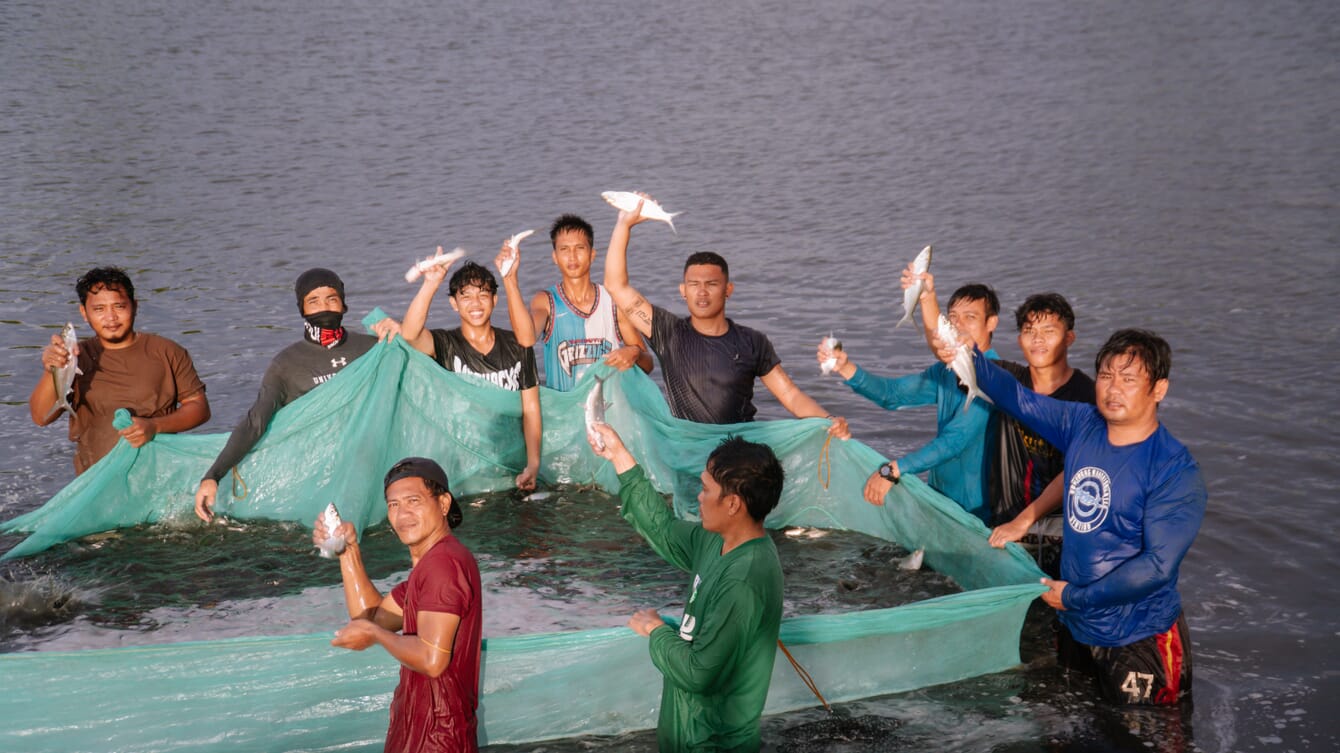
© Nyra Armada
Milkfish (Chanos chanos) typically require four to five months (120–150 days) to reach approximately 440 grams, an ideal market size. However, the grow-out period was shortened at SEAFDEC/AQD’s Dumangas Brackishwater Station (DBS) in Iloilo, Philippines, through the use of probiotics and high-protein feeds during the initial thirty days of culture.
In a recent experiment, fingerlings from the Tigbauan Main Station were stocked in pond 13 of DBS, at one piece per square meter, where they reached 350–400 grams in less than three months.
“The average initial weight of fingerlings was 37 grams, and they grew to 350–400 grams in just 85 days,” said DBS station head, Edgar Somblingo, in a press release.
Probiotics improved pond water quality by breaking down organic matter for a stress-free environment that boosts growth, weight gain, and feed efficiency. The method also lowered the feed conversion ratio, meaning less feed was required to produce one kilogram of fish.
“Shortening the grow-out period could mean lower production costs for fish farmers. This method can make milkfish culture more profitable,” explained Somblingo.
Compared to conventional methods, Somblingo added that the trial recorded higher average body weight and better survival rate.
Dan Baliao, SEAFDEC/AQD chief, said the department will share the farming protocols with fish farmers once further trials confirm the results.
“This is part of SEAFDEC/AQD’s ongoing efforts to refine milkfish farming through practical and cost-saving techniques, but we want to be sure our methods are consistent before we share them with the industry,” said Baliao.


